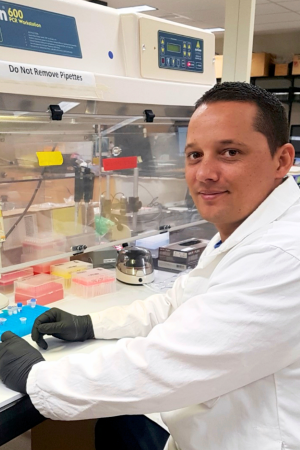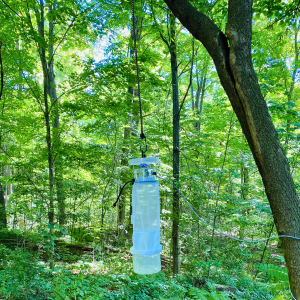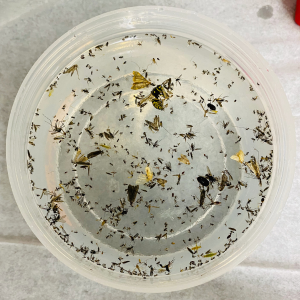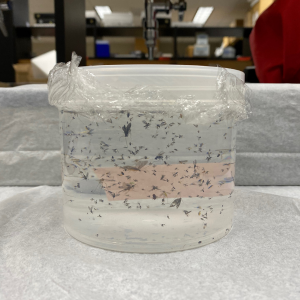Integrative Biology research associate Dr. Yoamel Milián-García wins Invasive Species Centre's 2024 Innovation Award
 Dr. Yoamel Milián-García, a Research Associate in Integrative Biology, has been awarded the 2024 Innovation Award by the Invasive Species Centre, in recognition of methods he developed and optimized to quickly, accurately, and cost-effectively detect invasive alien species.
Dr. Yoamel Milián-García, a Research Associate in Integrative Biology, has been awarded the 2024 Innovation Award by the Invasive Species Centre, in recognition of methods he developed and optimized to quickly, accurately, and cost-effectively detect invasive alien species.
As a postdoctoral fellow working with Dr. Robert Hanner from 2019 to 2023, Milián-García collaborated with the Canadian Food Inspection Agency to study the use of eDNA metabarcoding to identify invasive alien species. The researchers tested saturated salt trap solutions, which capture and preserve environmental DNA and insects, in various places in southern Ontario. From those samples, they were able to identify species, including biting midges, emerald ash borer, and spongy moth, with a combination of DNA metabarcoding, which analyzes the genetic material in samples, and morphological approaches.
“Our studies ratify the efficacy and importance of eDNA-based detection in a regulatory context and their effectiveness in biosurveillance and biomonitoring programs,” says Milián-García.
Milián-García’s findings on the topic were published in the journals Ecology and Evolution, Insects, BMC Genomics, and PLOS One, with a fifth paper under review.
The Canadian Invasive Species Centre’s Innovation Award recognizes individuals who have moved a creative idea to practical reality, transforming or improving invasive species prevention and management in Canada, and who’ve made substantive and enduring outcomes through the skillful application of novel and useful ideas.
 |
 |
 |
Milián-García has more than 15 years of experience applying cutting-edge technologies to ecosystem research, including through partnerships with the University of Guelph, the University of British Columbia Okanagan, the American Museum of Natural History, the Canadian Food Inspection Agency, and Parks Canada.
During his master’s and Ph.D., as well as a postdoctoral fellowship with the University of Havana, UBC Okanagan, and the American Museum of Natural History, Milián-García generated useful genomic information for the conservation of Cuban crocodiles, earning several awards in the process, including from the Cuban National Academy of Sciences.
Currently, Milián-García is working with Hanner and Dr. Sarah Adamowicz, in collaboration with Ecological and Regulatory Solutions Inc., to compare morphology and DNA-based approaches to environmental effects monitoring.